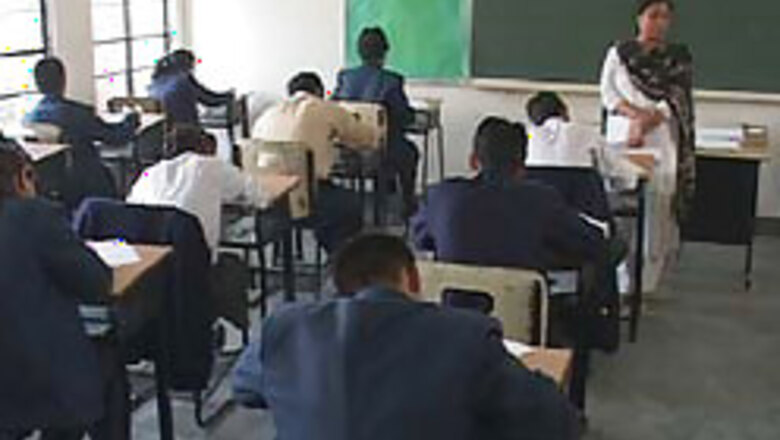
views
New Delhi: "Show them (the students) the evaluation, not the evaluator." That's the verdict of the vox populi when they were asked if students have a right to see how their answer sheets are evaluated and who did it.
The issue acquired centrestage after as many as 300 DU students used the Right to Information (RTI) Act, demanding to see copies of their answer sheets, tabulation sheets and seeking to know the breakup for evaluation of papers and also names of the evaluators.
Most of the responses posted on ibnlive.com were in support of students' right to know how their answer sheets were evaluated.
"The details on the evaluation sheet and break up of marks can be made available, but given the age-old culture of respecting teachers, no way can the identity of the examiner be divulged," says Amit.
"Have we forgotten what happened to Professor Sabharwal from Ujjain? Do you want another professor dead from DU as well?" he questions.
Gurjeet Sekhon asserts that a student puts in his best efforts and should have the right to know why did he score more or less.
He also points out, "This will also exert positive pressure on evaluators to do their job with utmost seriousness."
Heading the campaign is this year's Magsaysay awardee Arvind Kejriwal. The founder of the NGO, Parivartan, Kejriwal is an active crusader for transparency in the Government. He has launched a campaign titled "It's the Question of Your Answers".
Under this campaign, students can now ask the Public Information Officers (PIOs) to furnish information about the examination that they have taken.
The campaign seeks that the students know about the criteria of marking, their marks break-up, reasons for delay in examination and results, model answers and even the name of the examiners and tabulation sheets submitted by these examiners.
However, DK Singh has a different take on the RTI. He argues that seeking information under the aegis of the Act cannot be specifically termed as being good or bad as it is purely "application-centric and cannot be generalised".
"The fabric of teachers-students relationship in general will be damaged cutting across all lines. Although RTI is a win for democracy, its use needs to be monitored and channelised to safeguard democracy."
But in the sphere of education, the RTI Act seems to have posed the biggest challenge with the students suddenly discovering a critical tool to take on the academic authorities head on.
Terming UPSC's opposition to sharing of the answer scripts under the RTI as "wrong", a reader says that its continued opposition probably gives credence to the view that there are ulterior methods at work in the selection process.
Others like Sandeep say that it is very "encouraging" to see that the students have understood the power of such an effective tool at a young age.
"If this mesage goes clear at this young age, I am sure this generation will pursue it and we will see a steady eradication of corrruption from this country," he adds.
Even as students of Delhi University struggle to introduce transparency in the academic fraternity, Arun points out that in states like Tamil Nadu, the are transparency has already set in.
"Presently, this is applicable for +2 (State Board) students. There won't be any problem in giving away copies of answer sheet to the students. This will boost their confidence on the evaluation process and also inject caution into the evaluvator's mind," he adds.




















Comments
0 comment